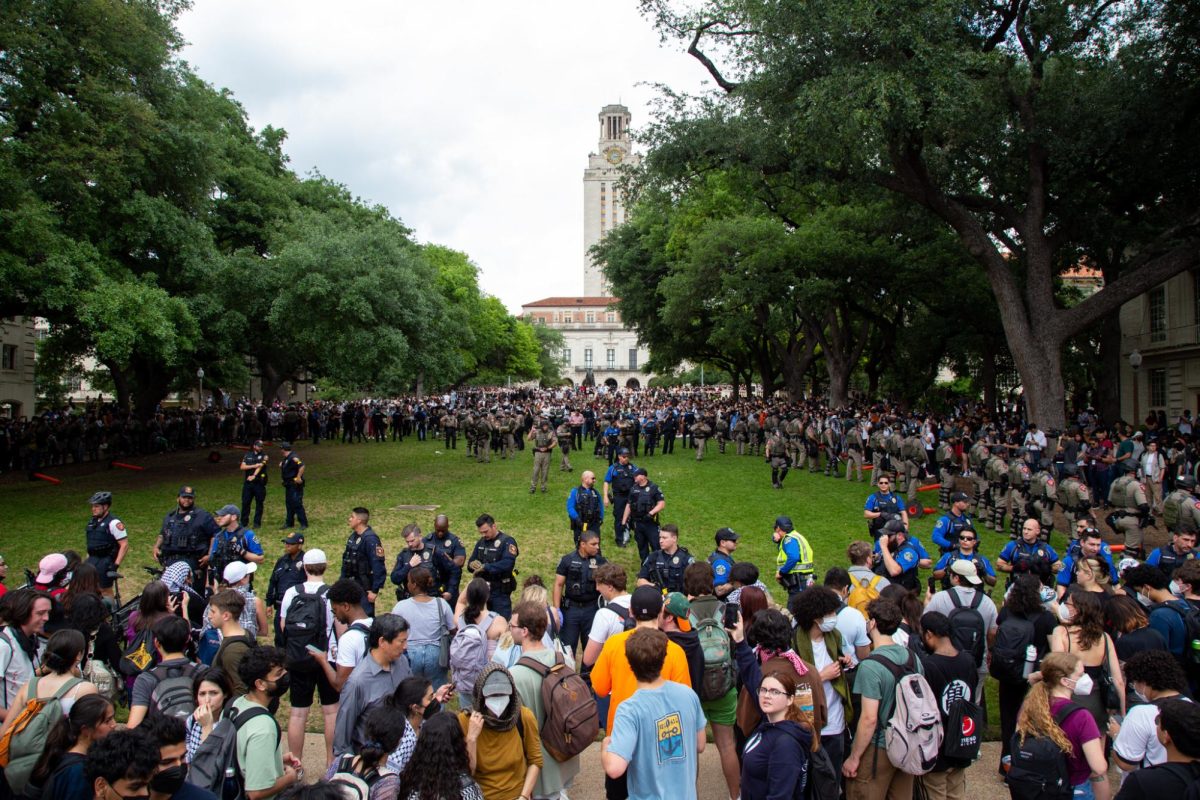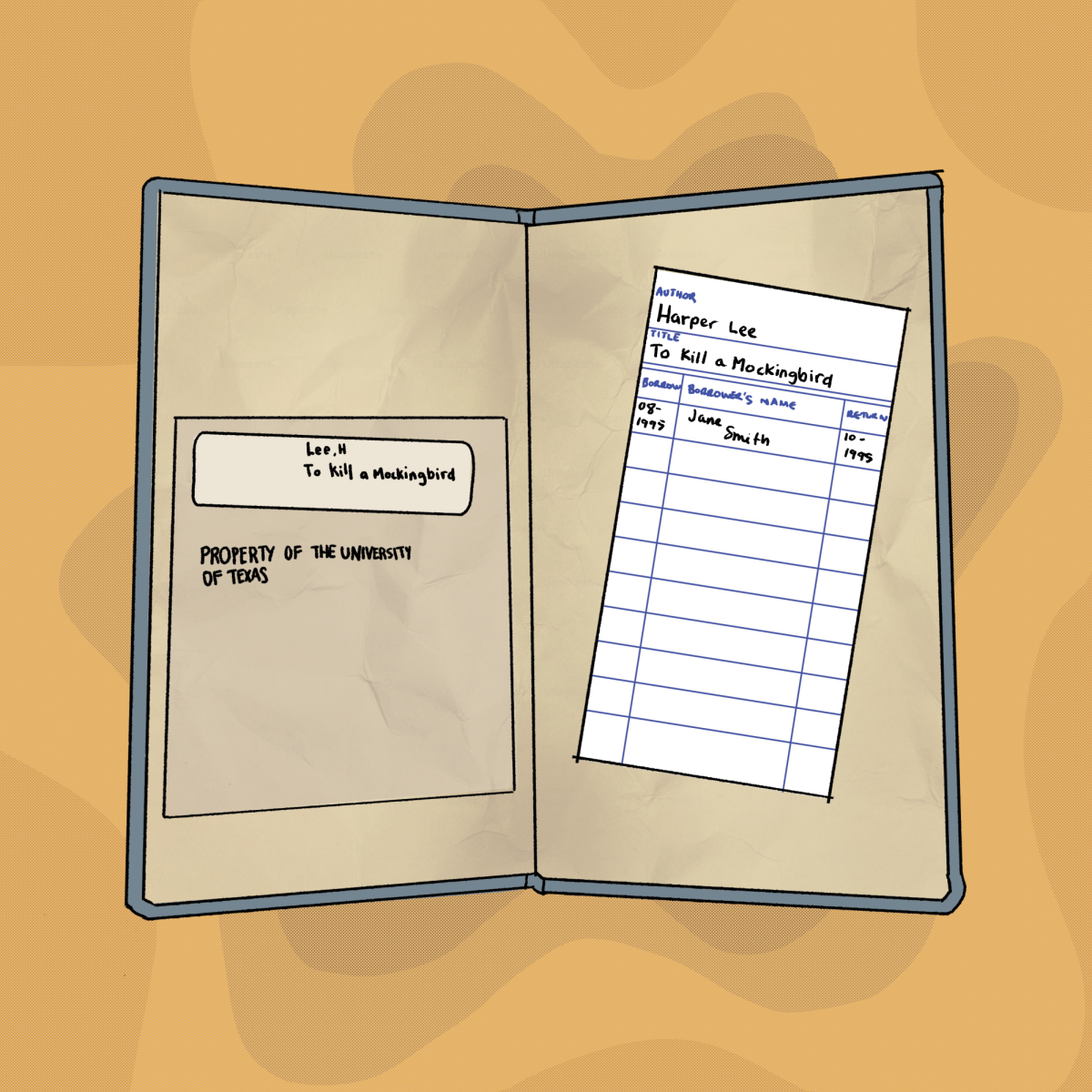Recent UT graduate Anne-Marie Jardine appealed a deferred suspension from the University after she was arrested at the pro-Palestine protest on campus on April 24. She learned on Aug. 19 that her appeal was denied.
Jardine is one of multiple students facing disciplinary action for participating in April’s pro-Palestine demonstrations, ranging from academic probation to suspension. While she has no plans to return to UT, she worries about current students continuing to face sanctions.
“I cannot imagine how it feels, having to walk by the place that you were arrested at, having to walk by the police that arrested you and being on high alert all the time,” Jardine said.
60 UT students were arrested on campus on April 24 and April 29, according to the Austin-American Statesman. In June, the University began informing multiple students of disciplinary action in response to their activity at the protests. The University declined to provide information on the total number of students subject to disciplinary action.
County Attorney Delia Garza has since dropped the charges against all protesters, but the lack of criminal charges has no bearing on UT’s disciplinary proceedings, University spokesperson Mike Rosen said in an email.
In July, the Committee of Counsel on Academic Freedom and Responsibility released a report which concluded the University violated its own institutional rules during its response to the April pro-Palestinian protests.
While Jardine did not mention the report in her appeal, an appellate officer said in the appeal denial letter the report’s findings don’t impact disciplinary proceedings because the report does not mention individual students.
The evidence in Jardine’s letter also included Instagram posts from the Palestine Solidarity Committee and three pictures of tents that did not include Jardine.
Rosen said the University could not answer specific questions about why non-individual evidence was included in some students’ disciplinary proceedings due to federal privacy law.
“University policy doesn’t give the University the authority to investigate students without individualized evidence,” said Savannah Kumar, an ACLU attorney. “Consequences that are stemming from generalized information that’s not student-specific raises serious concerns and can violate the First Amendment.”
Following April’s demonstrations, former sociology student Stanley Davis was suspended for two years for disruptive conduct, failure to comply and property damage. He cannot enter campus until Fall 2026 without written approval from the vice president for student affairs.
According to a July 3 letter from the Office of the Dean of Students, Davis “attach(ed) signs with an unknown, strong adhesive,” which damaged buildings’ walls and required “University supplies” to restore.
Bodycam footage shows Davis among the first arrested on Speedway on April 24. The June 7 letter informing him of his disruption and failure to comply included the same pictures of tents as Jardine’s letter as evidence. The tents were set up and dismantled on the South Lawn after Davis was arrested.
Davis said he doesn’t plan to re-enroll in UT after his suspension period and will finish his degree at Austin Community College.
“I have been surprised by just how viciously the school is willing to come after its own students, especially in situations where (it) did not act in our best interests to begin with,” Davis said.
Mia Cisco, a health promotion and behavioral science senior, was arrested on April 24 and sanctioned with academic probation in June. While she considered appealing the decision, she said she couldn’t risk a harsher sanction.
Kumar said many disciplined students experience a “double bind” where they could either stay silent and accept sanctions they think are unfair or appeal and risk a more severe punishment.
Although Cisco’s sanction was relatively light, she said it feels like a “scare tactic” to deter students from future protests. If she is caught breaking institutional rules again, she could face suspension, she said.
“We’re not going to be deterred,” Cisco said. “But I don’t plan on breaking the laws. We’re going to figure out new ways to (protest) in a way that doesn’t jeopardize us.”
Editor’s note: This story was updated to reflect that the images of tents in the University’s letter to Stanley Davis were from April 24. A previous version of this story incorrectly stated that the images were from April 29. The Texan regrets this error.














